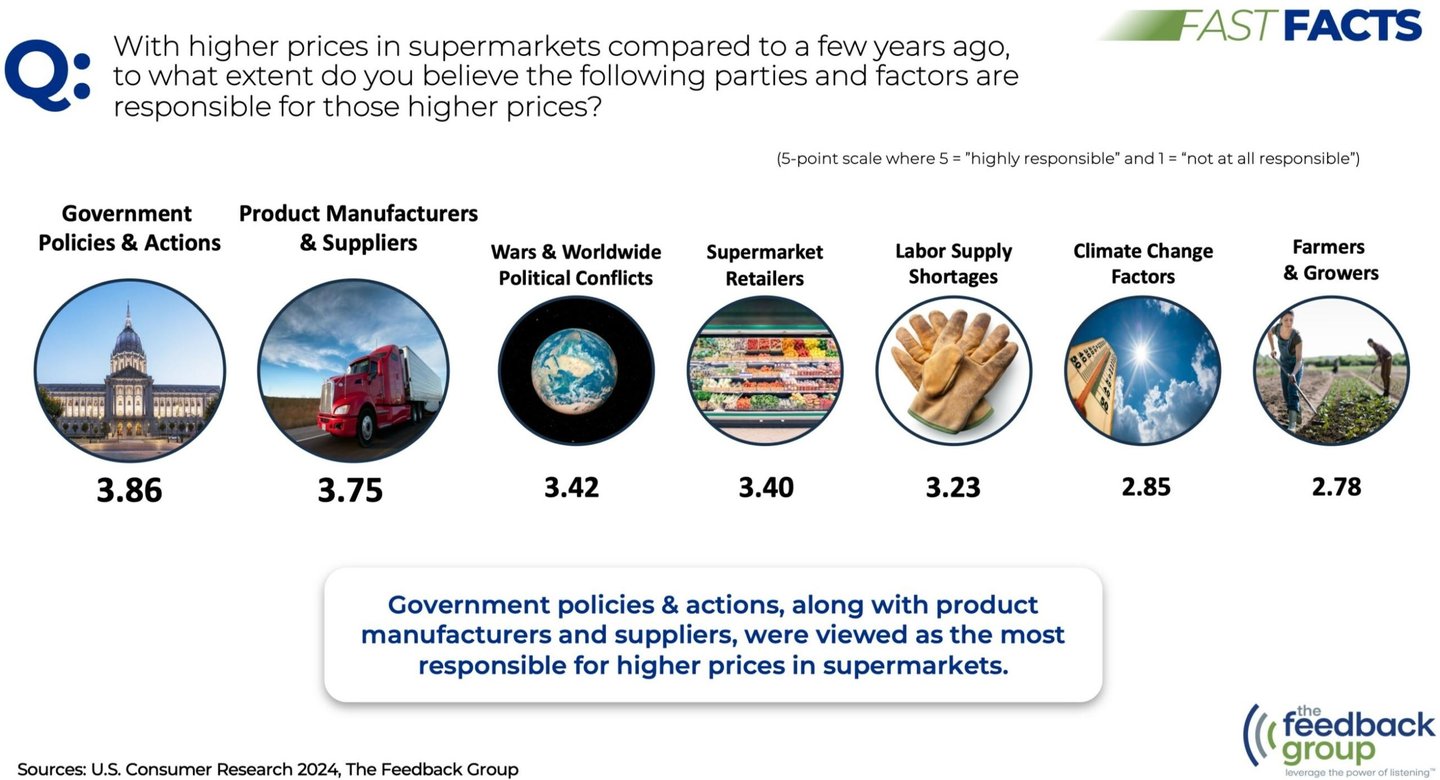Inflation and the Grocery Blame Game
Grocers remain in the crosshairs of some looking to assign blame for accelerated costs of living.
The same day that the U.S. Bureau of Labor Statistics (BLS) released its monthly Consumer Price Index (CPI) data, President Joe Biden spotlighted the role of grocers. “I have a plan to lower costs for housing — by building and renovating more than 2 million homes — and I’m calling on corporations including grocery retailers to use record profits to reduce prices,” he declared. Over the past few months, the president has also decried “shrinkflation” and the role that food companies play in product portions and pricing.
Meanwhile, fallout continues from last month's report from the Federal Trade Commission (FTC) implicating grocers for raising prices for profits during the pandemic and subsequent supply chain bottlenecks. This week, some state legislators in Connecticut called on grocers to release information about their profits during and after the pandemic. In a news conference on April 11, three Democratic lawmakers in that state contended that data shared by the FTC shows that grocery inflation is not in line with retailers' own business costs.
Who do consumers blame for inflation? New research from The Feedback Group shows that shoppers turn the finger back to government while also pinning responsibility on suppliers. On a scale of one to five, with five as “highly responsible” and one as “not at all responsible,” consumers gave government policies and actions a 3.86, the highest score. Coming in second, in consumers’ opinion, are product manufacturers and suppliers (3.75), followed by geopolitical conflicts and issues (3.42).
Grocers came in fourth in terms of perceived blame for high food prices in this poll. Respondents scored food retailers 3.40 out of 5.0.
That said, consumers expressed some wariness when it comes to their local grocer. When presented with the statement, “My primary store is on my side when it comes to inflation,” 40% agreed and 60% disagreed.
Further, the research reveals that consumers continue to overestimate grocers’ profit margins. While grocers’ actual net profit hovers between 1-3%, today's consumers peg that rate at 31%, down from the 35% they estimated last year.
Doug Madenberg, chief listening officer of The Feedback Group, put the research results in perspective. “In this politically charged environment, supermarket shoppers believe that government policies are the leading influence on higher supermarket prices. Product manufacturers and suppliers follow closely behind, while supermarkets are viewed as further down the list, along with other factors. More holistically, what emerges is a picture of multiple factors that the average consumer navigates, all contributing in various degrees to the price tag they face at the checkout," he said.
Added Brian Numainville, a principal at The Feedback Group: "Clearly shoppers believe supermarkets could do more in terms of supporting them when it comes to fighting inflation, as well as communicating why product prices have increased. This is especially important in light of the inaccurate profit perception we continue to find in our research.”






